Lab Members
CURRENT
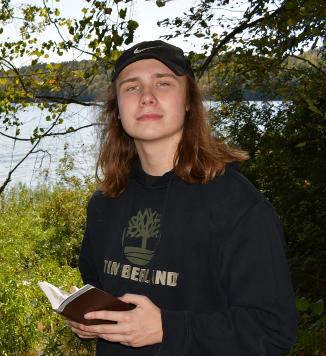
Braxton Jeffcoat
Braxton is a Environmental Studies and Sciences and Biology double major studying the community structure of remnant urban forested areas around Memphis. One of his specific interests focuses on examining the density of Pawpaw (Asimina triloba), an evolutionary anachronism, in forest remnants of southwest Tennessee. In 2021, Braxton was awarded the Rosanna Cappellato Award in Environmental Sciences to aid his research.
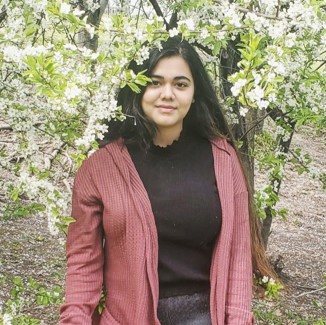
Nowreen Sarwar
Nowreen is an international student from Bangladesh pursuing a Neuroscience major and Chemistry minor. But, she is also interested in plant evolution! In the lab, Nowreen is working on imaging and measuring stomata from L. tridentata leaf peels to examine differences between ploidies in areas of sympatry vs. areas of allopatry. She plans to pursue medical school after Rhodes to investigate and treat genetic neurodegenerative diseases. While not participating in data analysis and research, Nowreen loves to read books, cook, or cuddle cats!
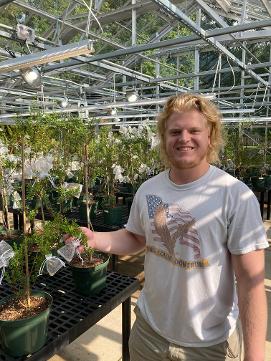
Jacob Spears
Jacob is a Biology major and member of the Rhodes College football team interested in plant evolution. His research is focused on investigating the reproductive interactions between 2x, 4x, and 6x Larrea tridentata by conducting hundreds of hand pollinations between greenhouse-grown plants, dissecting fruits, counting seeds, and growing progeny to assess fitness.
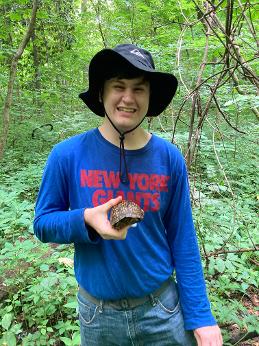
Aidan Kron
Aidan is a Biology major exploring scientific research. He has been focused on working with Braxton to conduct field surveys of forest community structure, while also helping Jacob to dissect fruit from controlled crosses on Larrea tridentata. He is also continuing work to image and measure stomata from L. tridentata leaf peels to examine differences between ploidies in areas of sympatry vs. areas of allopatry.
LAB MASCOT
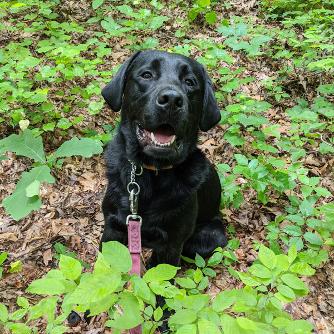
KEUKA
Keuka hails from Columbus, Ohio where he started training to be a guide dog. He transferred to Rhodes College and is currently majoring in Sniffing. Keuka has been actively involved in the Laport Lab's search for American chestnut populations in west Tennessee and north Mississippi. He loves being outside botanizing, getting into poison ivy, and chasing toads. Keuka was named Pet of the Week by Rhodes Human Resources in July 2020!
Lab ALUMNI
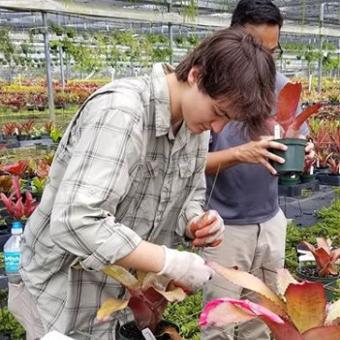
BRIAN CHRISTMAN
Brian was a Biomathematics major who worked with Zoe on creating a demographic model for extant populations of American chestnut (Castanea dentata) in west Tennessee and north Mississippi to better understand population health and the long-term prospects for restoration of this once-common icon of eastern forests. He also assisted with conducting controlled pollinations between different ploidies of L. tridentata in the greenhouse to assess reproductive isolation. While not participating in research, Brian founded and served as the inaugural president of "Roots," the Botany Club at Rhodes College and student chapter of the Botanical Society of America. Brian graduated from Rhodes College in 2021 and is now pursuing graduate studies in Biostatistics at the University of Mississippi Medical Center.
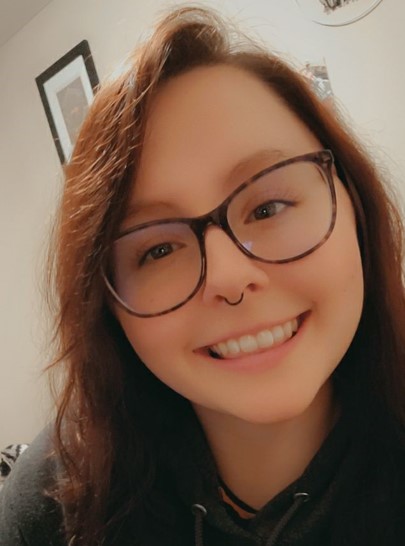
Zoe Brookover
Zoe was a Biomathematics major who worked with Brian on creating a demographic model for extant populations of American chestnut (Castanea dentata) in west Tennessee and north Mississippi to better understand population health and the long-term prospects for restoration of this once-common icon of eastern forests. She also assisted with conducting controlled pollinations between different ploidies of L. tridentata in the greenhouse to assess reproductive isolation. Zoe graduated from Rhodes College in 2021.
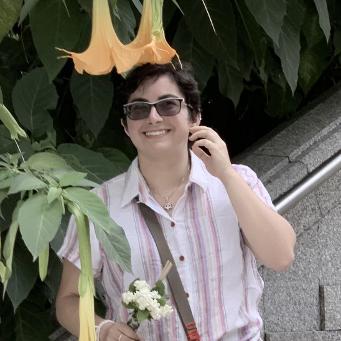
Ellie Aronson
Ellie studied stomatal size differences among 2x, 4x and 6x Larrea tridentata by imaging hundreds of leaf peels and making thousands of measurements. Ellie graduated as a Biology major from Rhodes in 2020, and she is interested in pursuing a graduate work extending her knowledge of evolutionary biology .
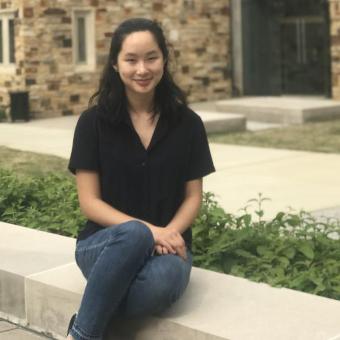
ABBY ELLINGWOOD
Abby joined the lab as a senior where she studied stomatal size differences among 2x, 4x, and 6x Larrea tridentata. Abby graduated from Rhodes in 2019 with a Biology major. She served as a Fulbright English Teaching Assistant in Malaysia before having her fellowship disrupted by COVID19. She is now pursuing a graduate degree in Biotechnology at Northwestern University.
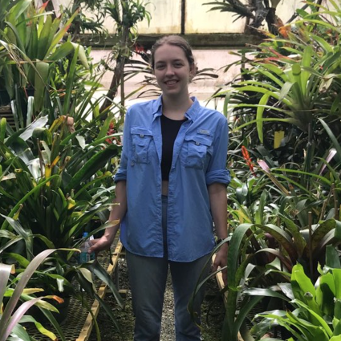
ALI CAMPBELL
Ali was a Biomathematics major with research interests involving plants ranging from field work to computational modeling. Ali graduated from Rhodes in 2019 and is pursuing graduate studies in applied mathematics for epidemiological modeling.
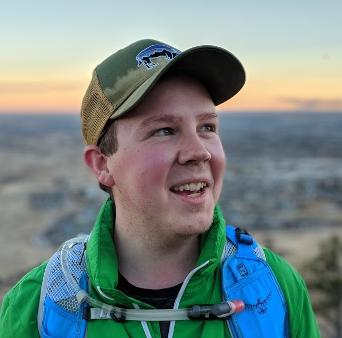
William Weaver
William graduated from the University of Colorado, Boulder in 2017 with a double major in environmental studies, and ecology and evolutionary biology. As an undergraduate, he helped collect bees on diploid and polyploid L. tridentata. Will also worked on testing hypotheses related to community invasibility using phylogenetic approaches, which resulted in a co-authored paper in Diversity and Distributions. He also developed LeafMachine, an autonomous machine learning approach to phenotypic trait extraction from digitized herbarium specimens (available on GitHub). Will is an experienced conference attendee, having presented his research at Botany meetings (2016, 2019) and Ecology meetings (2017, 2018). He is now a graduate student in Stephen Smith's lab at the University of Michigan and will continue collaborating on LeafMachine.
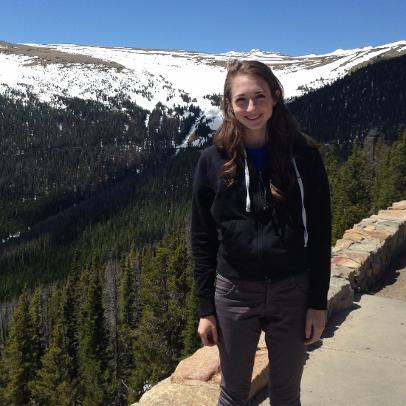
Michelle Gaynor
Michelle investigated the importance of polyploidy in structuring Brassicaceae and Rosaceae communities across the United States as part of a NSF-REU in 2016. By combining species occurrence information from the National Ecological Observatory Network, DNA sequence data, and cytogenetic data from primary literature, she found that polyploid species tend to be more distantly related to co-occurring species than diploid. She presented these results at the Botany meetings in 2016 and 2017, where she won best poster and oral presentation awards, and co-authored a paper in Frontiers in Ecology and Evolution. Shelly earned a degree in Biology at the University of Central Florida in 2018 (featured on the UCF College of Science pages!), and is continuing to pursue her interests in polyploidy and evolutionary biology as a graduate student with Pam and Doug Soltis at the University of Florida.
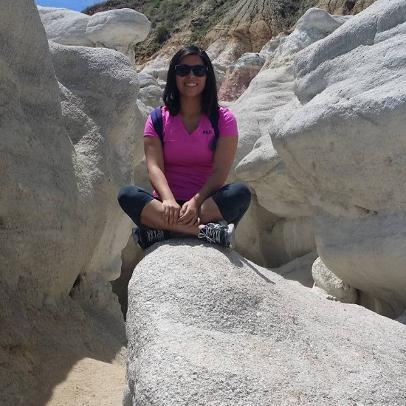
Vivianna Sanchez
Vivianna investigated how drought-adaptation traits shape Fagaceae and Ericaceae communities as part of a NSF-REU in 2016 using a combination of species occurrences from the National Ecological Observatory Network, DNA sequence data, trait measurements, and climate information from online databases. She presented her findings as a BSA PLANTS Fellow at the Botany meetings in 2016. In 2015, she conducted REU research in the California Channel Islands on bioluminescent bacteria. Vivianna earned a degree in Biology at Mount Saint Mary’s University, Los Angeles in 2017 and is continuing to pursue her interests in microbiology as a graduate student in the Hendry Lab at Cornell University.
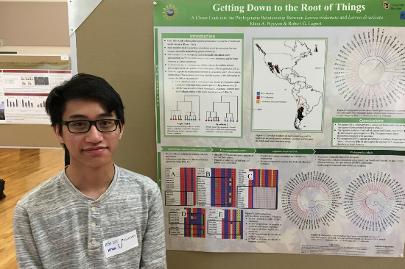
Khoa Nguyen
Khoa conducted research into the relationships between L. tridentata and its South American sister species, L. divaricata, using chloroplast DNA sequences obtained from herbarium vouchers with the aim of identifying source populations for intercontinental long-distance dispersals. As a University of Colorado Biological Sciences Initiative Fellow in 2016 and 2017, Khoa presented his research to peers and the science community at University of Colorado research symposia. He is now conducting independent cancer biology research at the University of Colorado Medical Center.
Jessica Persinger
Jessica participated in research on the phylogenetic community structure of plant species at sites surveyed by the National Ecological Observatory Network to investigate Darwin's Naturalization Conundrum pertaining to species invasions (are invasive species distantly or closely related to resident species?). In 2016 she was awarded a NSF-REU fellowship to work with Mitch Cruzan at Portland State University, where she recently defended her thesis focusing on hybridization and species delimitation in Ranunculus species.

Hannah Ghasemi
Hannah participated in research on the phylogenetic community structure of National Ecological Observatory Network sites as a Biological Sciences Initiative Fellow in 2017-2018 before spending a summer study abroad in Spain. She is now wrapping up her undergraduate studies in Ecology and Evolutionary Biology.
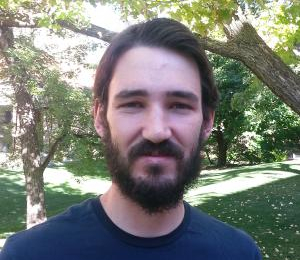
Nathaniel Pinson
Nathaniel participated in research on the phylogenetic community structure of National Ecological Observatory sites as a Biological Sciences Initiative Fellow in 2016-2017.
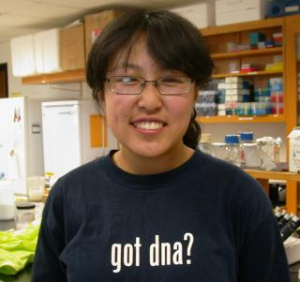
Kaixin Cui
Kaixin participated in research to help resolve the phylogenetic and biogeographic relationships among species in the genus Cestrum (Solanaceae) as a high school student. A major part of her research effort was to assist with amplifying the single-copy nuclear gene WAXY, which involved designing new primers and troubleshooting PCR protocols. She is now an undergraduate in Engineering at CU-Boulder.
Purity Muhia, Carter Kennell, Haydar Hasan
Purity (left), Carter (right), and Haydar (not pictured) conducted independent research into whether diploid, tetraploid, and hexaploid L. tridentata had different water use relationships. They conducted their research in the greenhouse on small plants collected from the field, gaining first hand experience designing and undertaking an experiment, while also managing live plants. They also co-authored a manuscript describing their results.
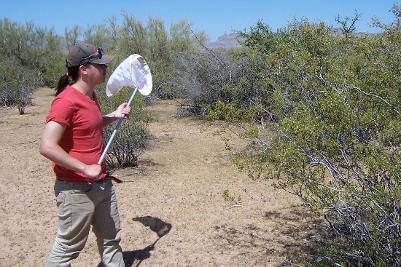
Maddie Deveney
Maddie participated in research helping to collect bees on diploid and polyploid L. tridentata in natural areas of co-occurrence, and also helped to investigate leaf guard cell size differences among the different cytotypes.
photos by R. Laport, J. Ng, S. Smith, & W. Weaver
COLLABORATIONS AND OTHER LABS
Justin Ramsey
Black Hills State University
Robert Minckley
University of Rochester
Julienne Ng
University of Colorado-Boulder
Diana Pilson
University of Nebraska-Lincoln
Stacey Smith
University of Colorado-Boulder
Tim O'Connor
University of California-Berkeley
Contact
ROBERT G. LAPORT
The College of Idaho
Department of Biology
2112 Cleveland Blvd.
Caldwell, ID 83605

